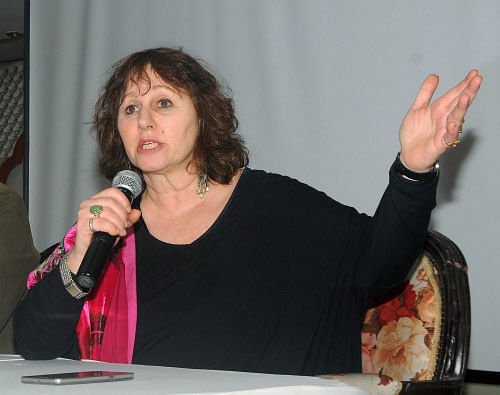
Despite opposition from the Indian government over airing of the controversial documentary made by British filmmaker Leslee Udwin, BBC went ahead and telecasted it in UK at 3:30 am today.
The government on Wednesday had moved to prevent the telecast of a controversial documentary on December 16 gang-rape victim in any country, but BBC decided to air it in the UK.
The documentary containing an interview of convict Mukesh Singh, especially his controversial statements on the victim, has run into trouble with a section of parliamentarians, activists and public objecting to it.
Following protests inside and outside Parliament, Home Minister Rajnath Singh on Wednesday made statements in the Lok Sabha and Rajya Sabha in which he said, “Under no circumstances this documentary will be allowed to be broadcast. The government has taken necessary action.”
However, late in the evening, the BBC, which has the rights to telecast the documentary, advanced its airing to 2200 hours GMT on Wednesday (3:30 am Thursday) from the original schedule of March 8.
The Home Ministry had asked the BBC, the Ministry of External Affairs, and the Ministry of Information and Broadcasting to ensure that the documentary, directed by British filmmaker Leslee Udwin for the BBC, is not broadcast anywhere in the world. It has also asked the Department of Information Technology to ensure that the documentary is not posted on any social media site or Youtube.
Officials said the Home Ministry is planning legal action against Udwin for violating stipulated conditions with regard to her interview with Mukesh inside Tihar Jail. A “hurt and shocked” Rajnath Singh said provisions for allowing such shoots inside jails would be reviewed.
“The filmmaker violated the conditions by selling the documentary to BBC as she was not allowed to use it for commercial purpose,” Singh said. Sources said that during a review of the documentary film in April 2014, the comments of the convict it contained were found “highly derogatory and an affront to the dignity of women”. The authorities were shown an edited version and not the unedited film as per permission conditions.
“Hence, they were requested to provide full copy of the unedited film for further review and they were asked not to release/screen the documentary till it was approved by the authorities,” Singh said. The Delhi Police moved the court after the BBC announced the airing of the documentary on March 8.
A Delhi court said the order restraining broadcasting of the interview of Mukesh, which was conducted inside the Tihar jail, will continue till further directions.
In the Rajya Sabha, however nominated MPs Anu Aga and Javed Akhtar struck a different note on the convict’s interview when they said that they favour the airing of the film. “The reality is that what that man (convict) spoke reflects the view of many men in India. Why are we shying away from reality? Why are we not confronting the issue? We should confront the issue.”
Lyricist Akhtar said, “It’s good that this documentary has been made. Crores of men in India have now come to know that they think like a rapist. If it is sounding dirty, they have to think.”